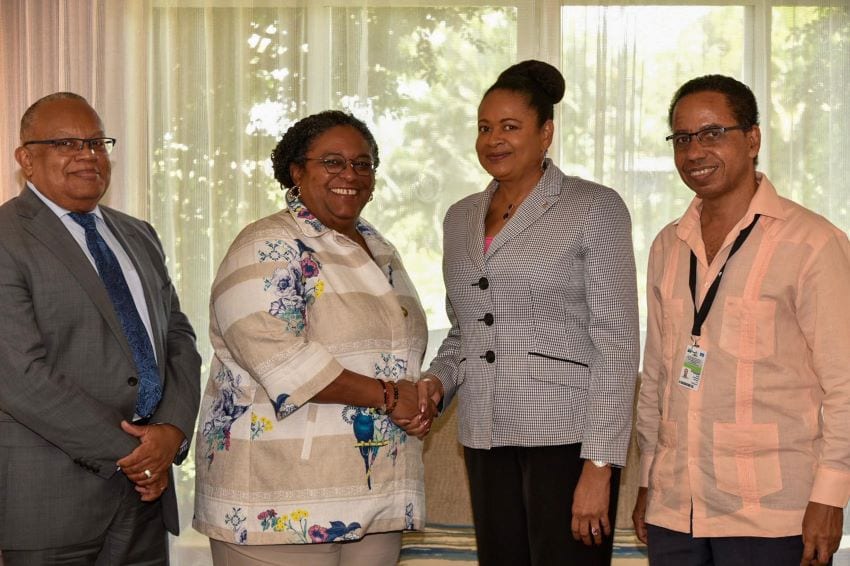
The preservation of the Caribbean Sea as a zone of peace and the recognition of the importance of the blue economy to regional states featured prominently today when Prime Minister Mia Amor Mottley met with Secretary General of the Association of Caribbean States, Dr. June Soomer.
The talks took place on the sidelines of the main discussions at the Sandals Grande Resort, Gros Islet in St. Lucia, during the final day of the 40th CARICOM Heads of Government Conference.
Other officials attending included Minister of Foreign Affairs and Foreign Trade, Senator Dr. Jerome Walcott and CARICOM Ambassador, David Comissiong.
Dr. Soomer also pointed out that her organization was paying attention to issues of transportation within the region as well as trying to give leadership to the coordination of activities of various regional secretariats to achieve greater efficiencies.
In response, Prime Minister Mottley called on Dr. Soomer to use her organization’s strategic placement to compile the various pieces of scientific data and opinions on the origin of the Sargassum Seaweed challenge now facing the region.
“I am trying to get to the source because the-polluter-pays principle may not be directly on point, but is certainly a starting position from which we can begin to put pressure on those who are contributing to help those who are suffering.
“If the Sargassum hits the west coast of Barbados and most of these islands, then we are going to be in serious trouble…. We need as a matter of urgency to be able to pull together all of the scientific evidence.
“And then on a second level we need the innovation to be able to determine how best to handle this at sea. And thirdly, the funding to access the plant and equipment necessary to harvest at sea. If we can harvest at sea, then it does not become a problem. Instead it becomes another maritime resource, like fish or minerals.
“The problem for us currently is that when it lands on the beaches it becomes noxious and toxic,” Ms. Mottley said.
Roy Morris, Press Secretary, Prime Minister’s Office
